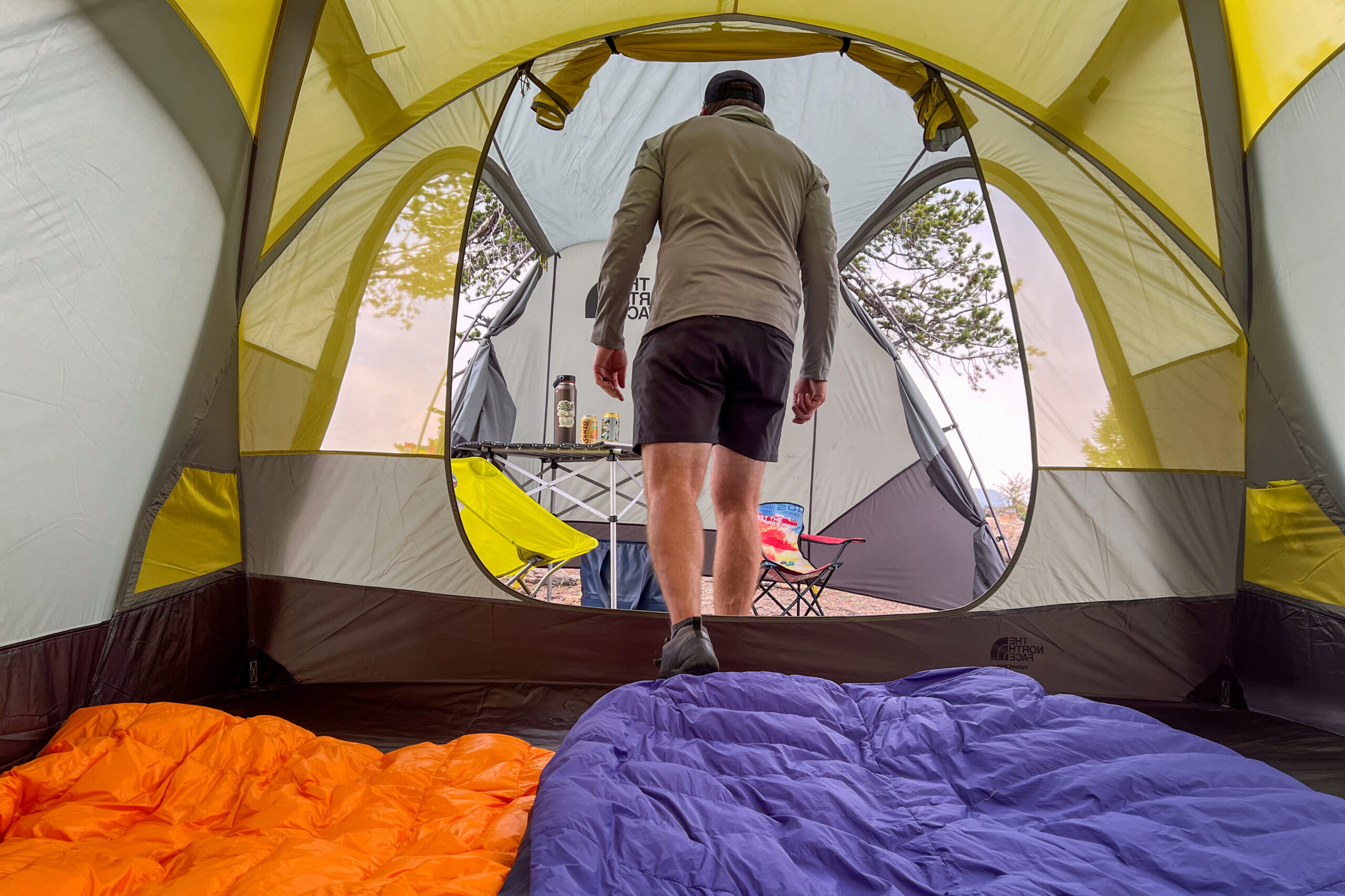Bottom Line
If you’re looking for a true basecamp tent with an almost impossibly large vestibule, top-quality fabric and poles, cavernous interior space akin to a New York City apartment, tons of pockets in convenient locations, and a design that will hold up to the elements despite its impressive ceiling height, look no further than The North Face Wawona 6. This tent performs well across testing metrics, and despite its higher-than-average price point, we still think it offers great value.
It’s not perfect. It doesn’t come with an included footprint, it’s quite heavy, and it certainly isn’t the easiest to pitch, but we believe the overall positives far outweigh the negatives.
We hit the road with this beast for six weeks across eight states on a family road trip to put every single detail of the Wawona 6 to the test and it performed admirably.
Quick Specs
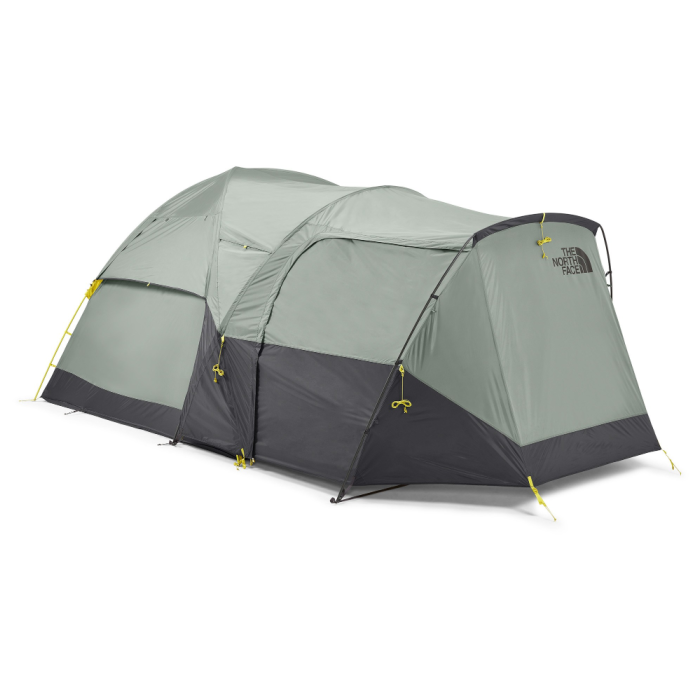
The North Face Wawona 6
Sturdy & Comfortable Camping Tent with a Large Vestibule
Price:
$500
The size we tested feels:
Luxurious for 3-4, comfortable for 5 & tight for 6
Weight:
21 lb. 14 oz.
Dimensions (LxWxH):
120 x 96 x 76 in.
Pros
- High-quality fabric & poles
- Huge interior space
- Smart pockets & organization
- Many guyline attachment points
- Tall ceiling
- Massive vestibule
- Effective vents
Cons
- Heavy
- One door
- Takes time to pitch
- Footprint not included
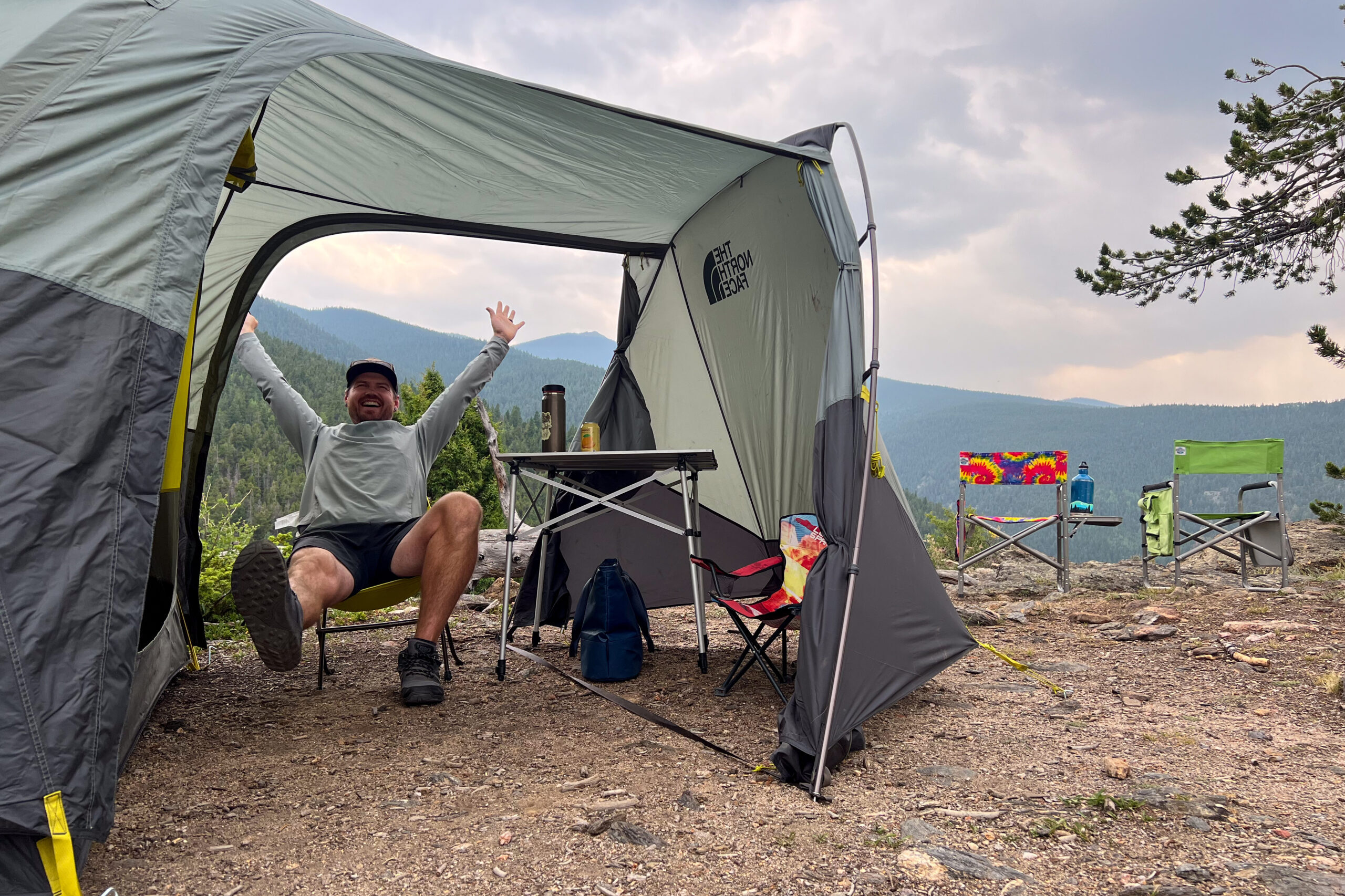
Comfort
The North Face Wawona 6 has a super generous 86.11 square feet of interior space. When you factor in the massive 44.7-square-foot front vestibule, the tent starts to feel more like a full-on basecamp. This model is supremely comfortable for a family of four. You can sleep six inside, especially if some are small children, but that won’t leave much room for extra gear. Fortunately, the large front vestibule serves as the perfect gear closet. During various trips with the Wawona 6, we used the vestibule to store toys, bikes, and coolers. In bad weather, it even became a hangout space thanks to its versatile design. We once used it as a spot for a quick shower after a particularly muddy hike with the kids.
Taller users will appreciate the impressive peak height of 6’4″. The tent’s shape allows for more headroom, not just in the center, providing space to walk around. While the height does taper towards the sidewalls, we found little to complain about when it comes to the Wawona 6’s spaciousness and comfort.
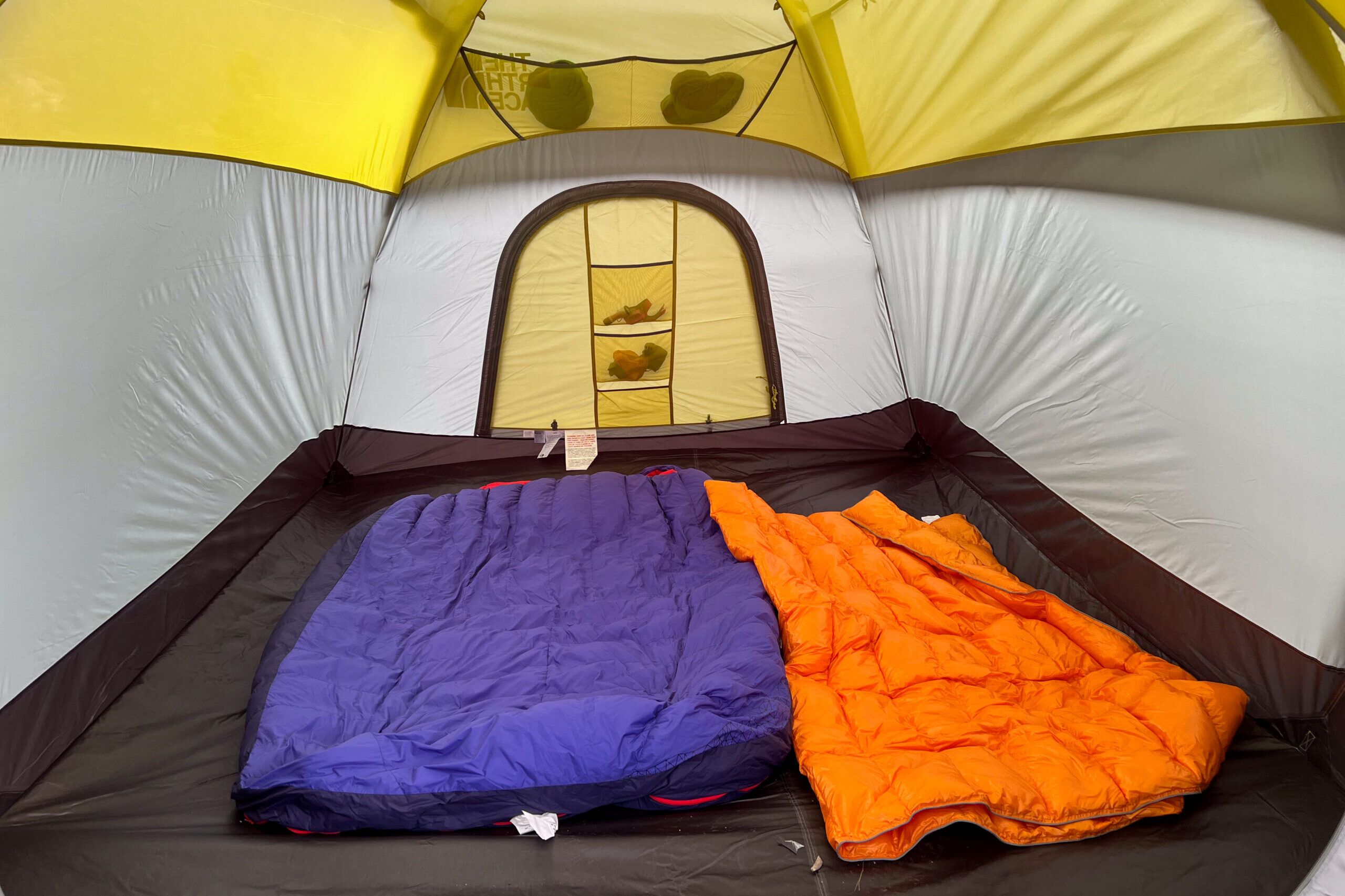
Durability
Compared to the other tents we tested, the Wawona 6 is right in the mix for durability and quality. All technical details aside, the tent’s materials feel high-quality and durable in use. The latest version of the Wawona 6 got a bit of an upgrade, including improved material quality. The most notable change is the use of DAC MX poles, designed to be strong without adding weight, which we found to be accurate.
The poles are indeed strong without feeling too heavy, even for a nearly 22-pound tent. All the zippers function smoothly without catching, and the fabric materials, including the tent floor—now made from robust 150D polyester with a PU coating—are thick and of high quality. However, it’s still wise to use a footprint or ground tarp to protect the tent floor.
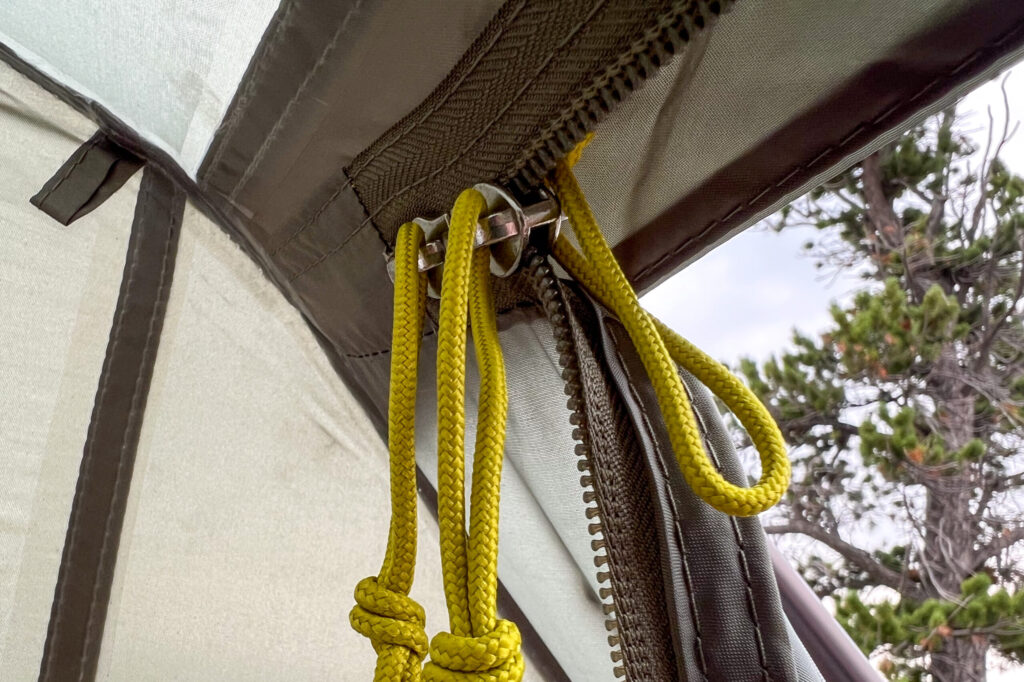
Weather Resistance
While we wouldn’t take the Wawona 6 on a true climbing expedition, we did go out of our way to camp in poor weather, and the Wawona 6 held up very well. Tents of this size and height will always struggle a bit in windy conditions, but even when pitched in exposed locations, our tent handled 40+ mph winds nicely, thanks to the many guylines and stake-down points.
In driving rain, we didn’t experience any leakage, despite the fact that the fly doesn’t cover the entire tent body. The fly doesn’t extend much past the mesh upper of the tent, so in severe sideways rain, that could be an issue, but we didn’t encounter any problems. If you’re a four-season camper, you would likely want full double-wall construction, making the Wawona 6 best suited for three-season camping.
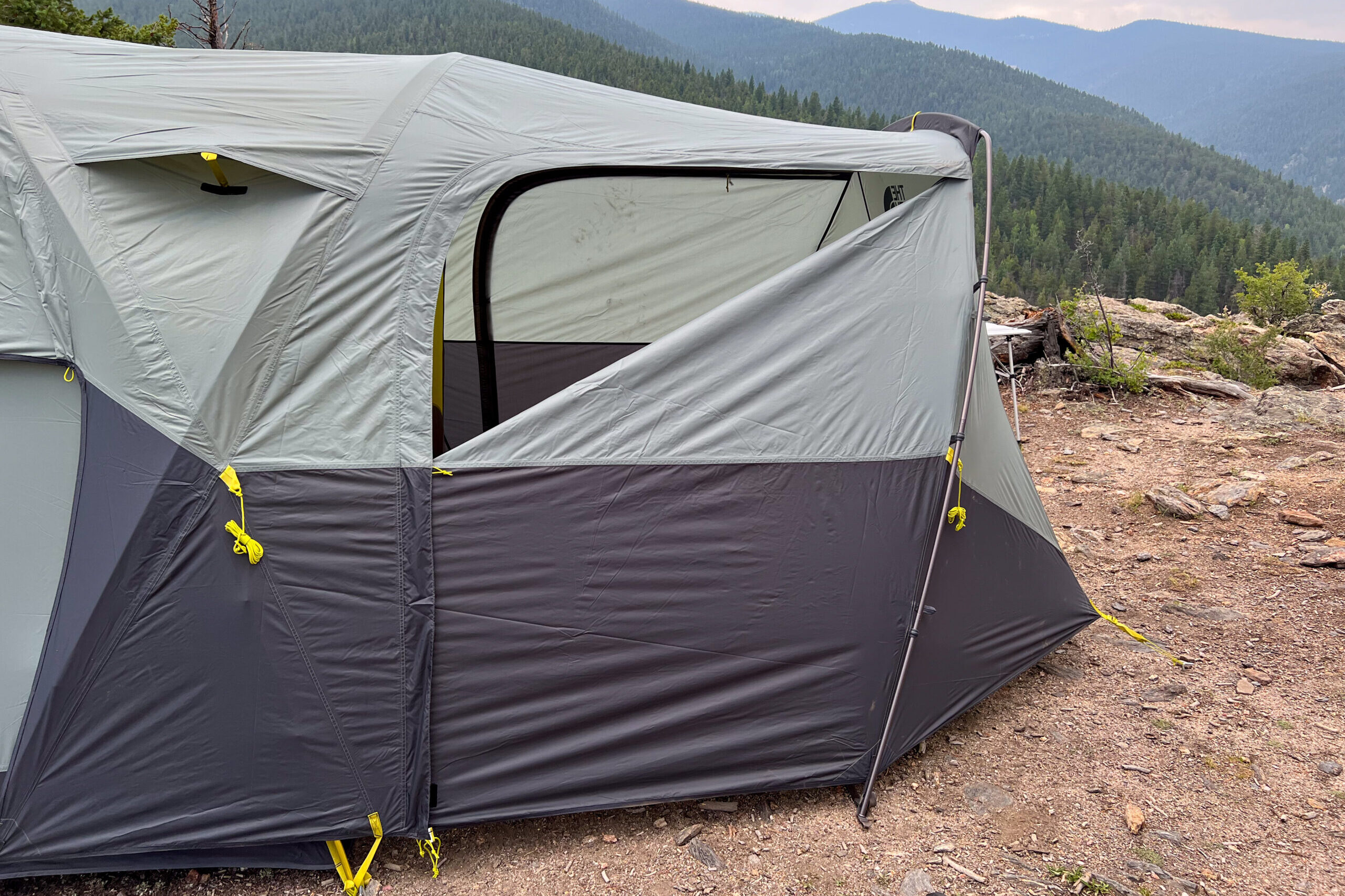
Ease of Setup
Our biggest gripe about this tent is how long it takes to pitch. Solo, it took us about eleven minutes to fully set up. That’s without wind. If there’s a breeze setting up the Wawona 6 can get hectic pretty fast. It’s quicker with a partner, but if you’re camping with small children, you might not always have help. It’s not that the process is complicated—the pole colors match the sleeves they fit into—it’s just that it’s a lot of tent. And that much tent takes time to pitch.
Ideally, we’d like to cut the pitch time down to five to seven minutes. While we did get quicker with practice, it still takes more time than most due to its size and the large rainfly/vestibule. Overall the sheer amount of material involved in setting up this tent makes it one of the more difficult tents to pitch. The Wawona 6 does come with pre-attached guylines which is a nice touch.
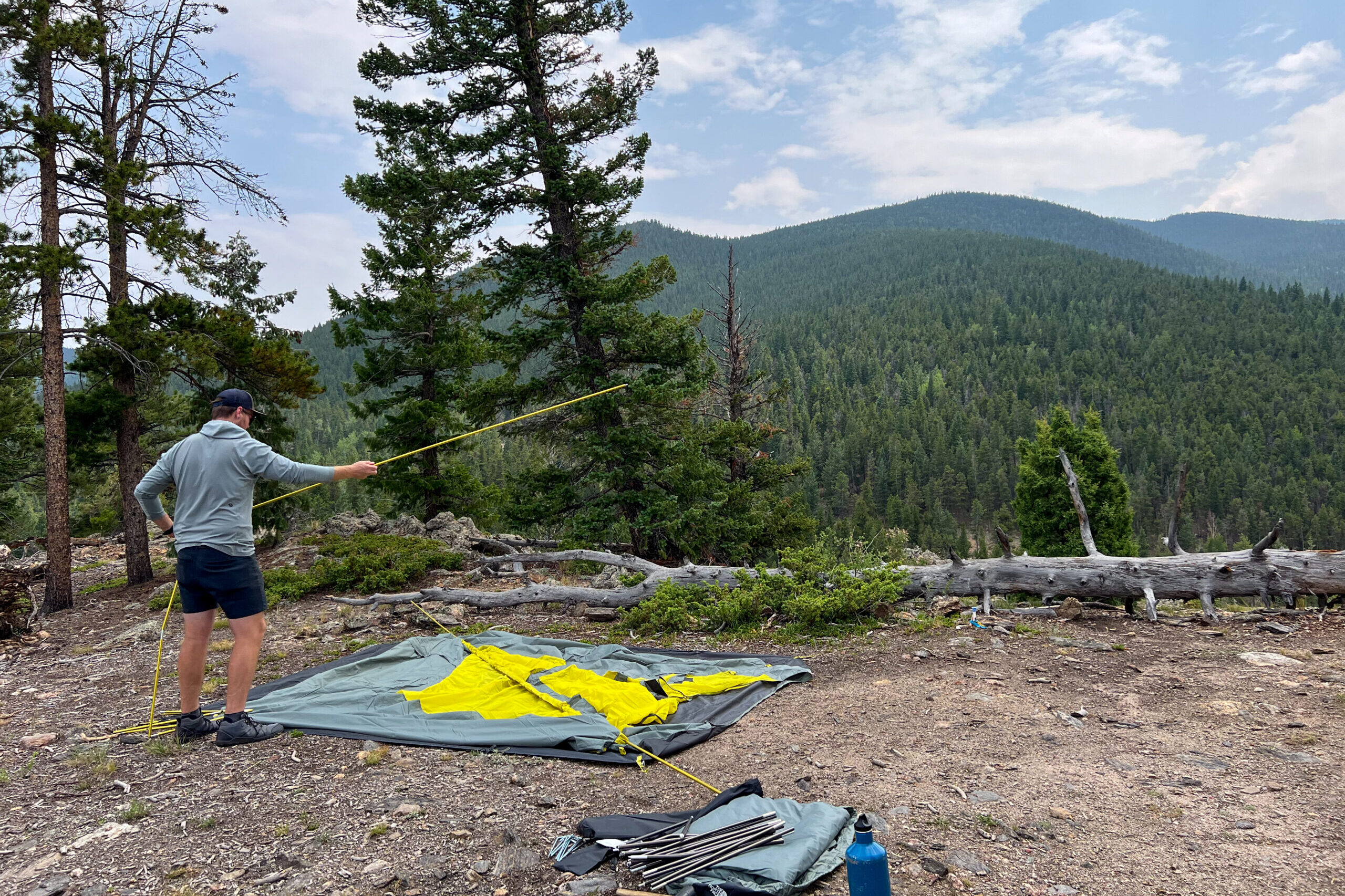
Features
We applaud the Wawona 6 for its thoughtful design, which includes ample pockets for smart organization. We were delighted to find enough pockets to hold all our kids’ gear, as well as our nighttime essentials like phones, watches, and stuff sacks. However, we found the pockets on the rear door a bit awkward, as our items tended to fall out when we unzipped the door. We’d also like to see some lower pockets that are easier to reach from our sleeping bags.
Large tents have a substantial surface area that can catch wind, which is why many of the tents we tested performed poorly in high winds. Fortunately, The North Face addressed this issue in their new design by incorporating numerous guyline attachments, allowing you to fully stake out the tent in intense weather—bonus points for the pre-attached guylines.
Many of the tents we tested this year lack effective ventilation when the rainfly is deployed, but the Wawona 6 solves this with two kickstand vents, allowing use in inclement weather. The fly also rolls up on either side to expose the mesh sidewalls, providing extra ventilation in fair weather. This design ensures excellent airflow, reducing condensation and keeping the interior comfortable.
Last, but certainly not least, the defining feature of the Wawona 6 is the massive 44.7-square-foot front vestibule, which makes this large tent feel cavernous.
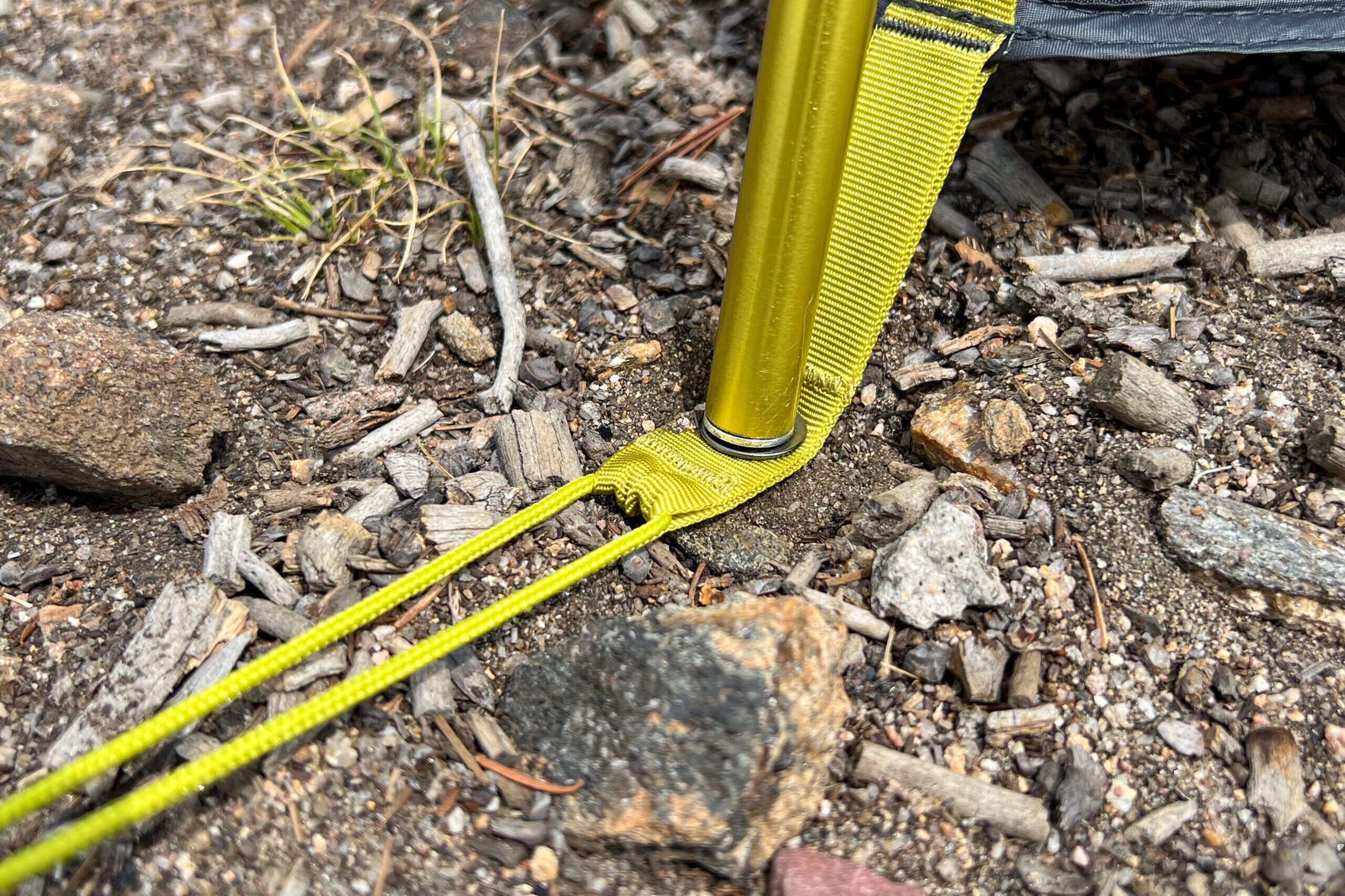
Should You Buy the North Face Wawona 6?
The North Face Wawona 6 is ideal for families or large groups who need a large interior with an impressive peak height. It’s also perfect for bikers and climbers due to the ample gear storage the vestibule offers. This tent is well-suited for campers who need extra space and plan on camping in various weather conditions, thanks to its high-quality materials and robust design.
However, the Wawona 6 is best for car camping due to its size. If you plan on hiking more than a short distance from your car with your tent, you may want to explore other options.
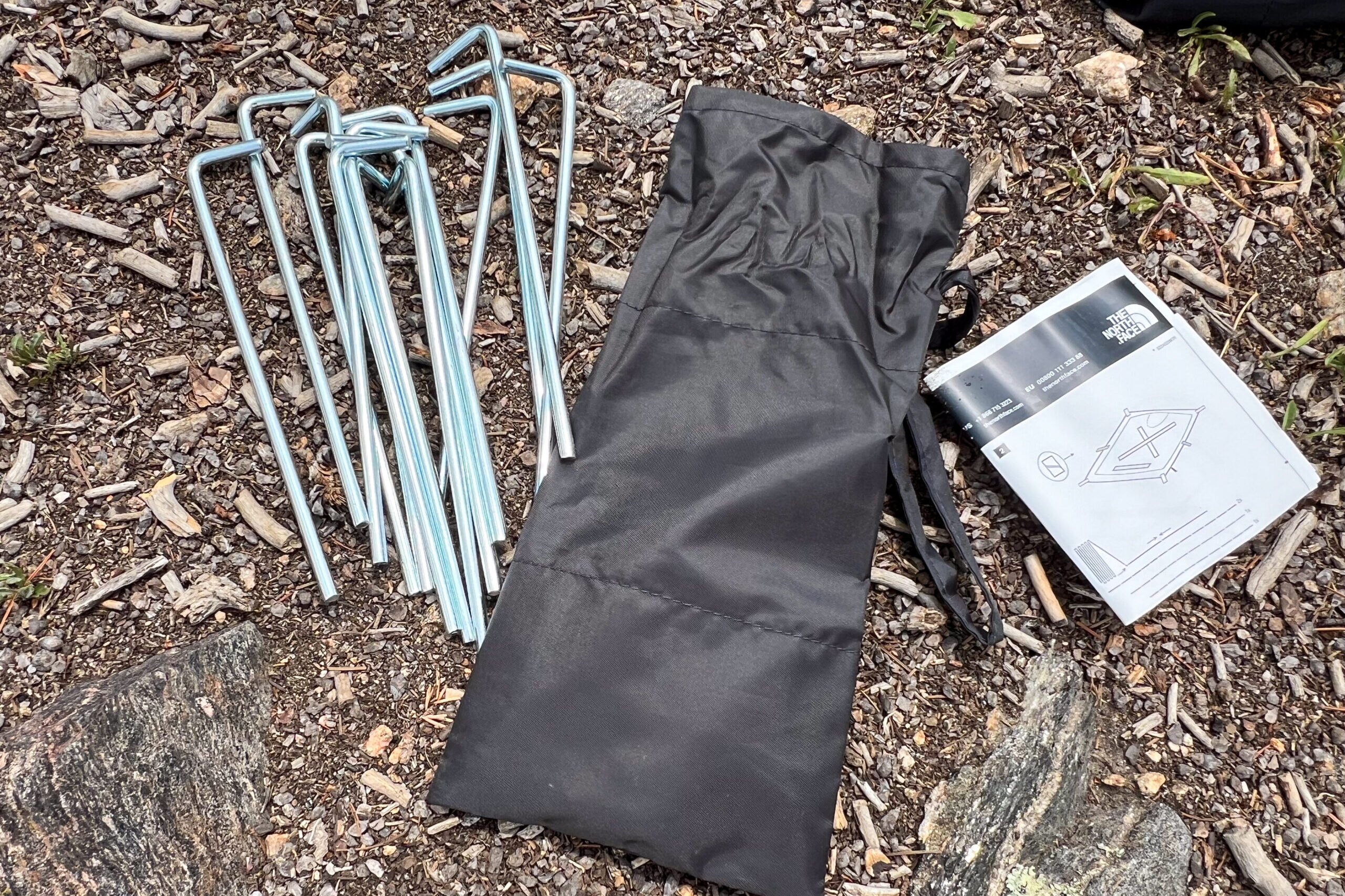
What Other Camping Tents Should You Consider?
Kelty Wireless 6 Review: If budget is a concern, check out the Wireless 6. It’s just over half the price of the Wawona 6 but still offers impressive livable space and a dual vestibule design.
MSR Habitude 6 Review: If budget isn’t an issue and you’re looking for a more premium tent made from high-quality materials, the Habitude 6 is worth a look. It’s a true upper-echelon tent made of even higher-quality materials than the Wawona 6. If you need a tent that will stand up to extreme conditions, the Habitude might be what you’re looking for.
